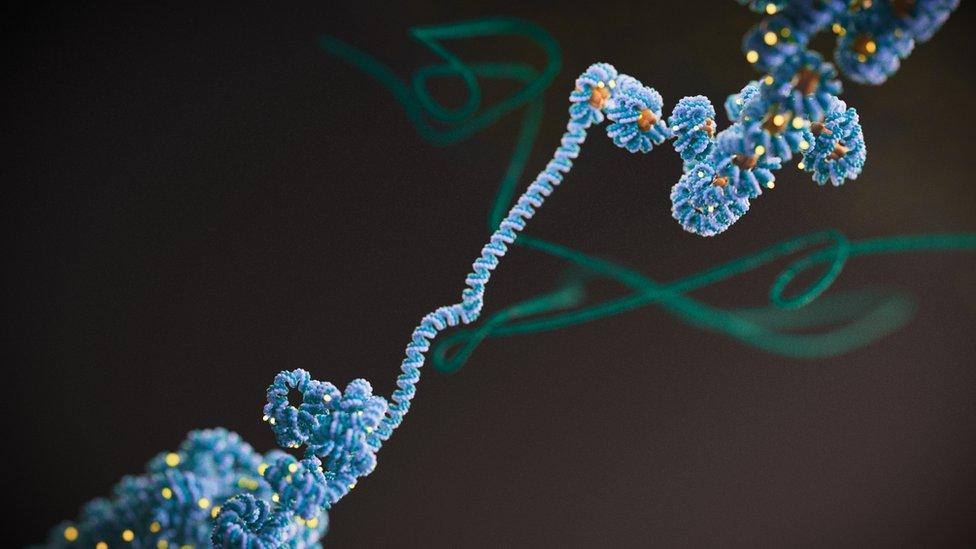Edinburgh University granted £46m for genetics project
- Published

Edinburgh researchers hope to learn more about DNA
Scientists at Edinburgh University have been awarded more than £40m for work which will include research into the lesser known areas of DNA.
The Medical Research Council (MRC) has awarded £46.3 million to the MRC Human Genetics Unit at Edinburgh University.
Scientists said their work could ultimately help people living with genetic conditions and cancer.
The work will include research into the 98% of DNA which is underexplored.
The five-year funding will support research into the "dark genome" - which was previously referred to as "junk" DNA.
It is hoped this work could help provide new insights into complex genetic diseases.
Since the human genome was first sequenced in 2003, research has mainly focused on parts of DNA that contain instructions for making proteins - the fundamental building blocks of all organisms.
However, these account for only 2% of the three billion letters that make up the human genome.
The remaining 98% of human DNA became known as dark matter, or the dark genome, which had no obvious meaning or purpose.
At first, some geneticists thought that the dark genome was simply junk DNA - the leftovers of broken genes which were no longer relevant.
However others believed the dark genome was crucial to the understanding of humanity, as it seemed unlikely that human DNA would keep so many useless genes for no reason.
Life pressures
Scientists said there must be an evolutionary reason to maintain the size of the genome.
It is thought that the primary function of the dark genome is regulating the decoding process, or expression, of protein-making genes.
This helps to control how genes behave in response to all the environmental pressures human bodies face throughout their lives.
These pressures include diet, stress, pollution, exercise, and sleep.
This is known as epigenetics - the study of how an individual's behaviour and environment can cause changes that affect the way their genes work.
Your epigenetics change as you age, and in response to where you live and how you live.
Epigenetics does not alter the DNA code, but it can control access to genes, and is increasingly seen as playing an important role in the development of cancer.
The MRC funding, which represents a significant investment in UK genomics research, will allow Edinburgh University scientists to focus more on these lesser known parts of DNA.
They will use collaborative research and new techniques to develop further understanding of genetic diseases.
Professor Wendy Bickmore, director of the MRC Human Genetics Unit at the University of Edinburgh, said: "It's exciting that we now have so much human genome sequence data, but we need to turn that data into knowledge about how our genome works in health and disease.
"This new funding will enable us to tackle that challenge together, harnessing experimental and computational expertise to better understand, manage and treat disease and, ultimately, improve the lives of people living with genetic conditions and cancers."
Related topics
- Published27 October 2022
